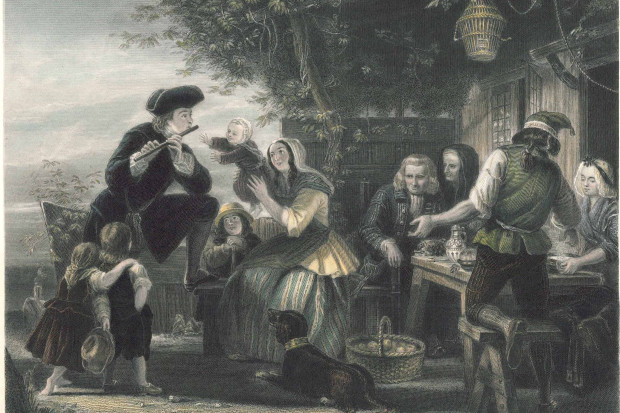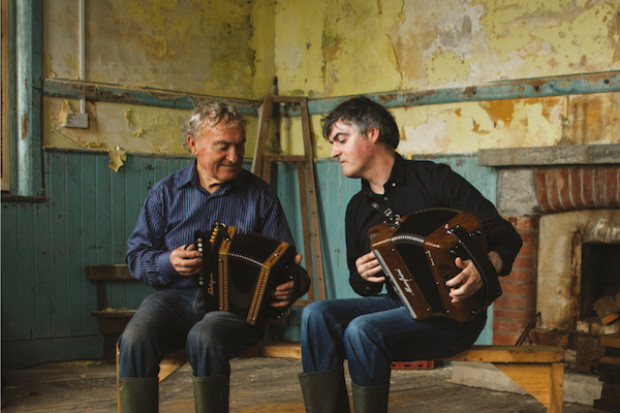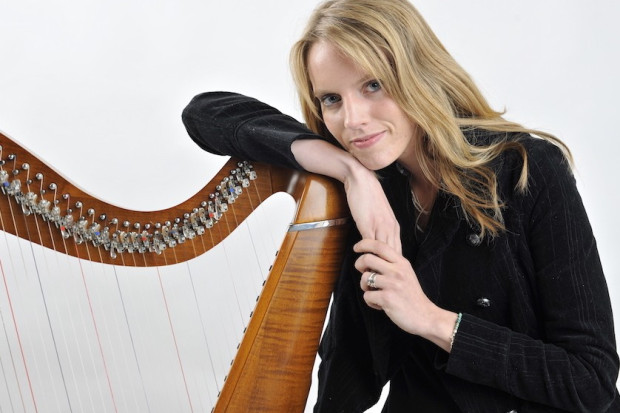Live Reviews: Musical Migrations – Irish Voices
(Paddy in the Smoke – Irish traditional music from England; Iarla Ó Lionáird & Band; Donal Lunny & Friends)
Various venues, Cork , 23–26 November 2005
Irish Voices, the third and final instalment in the Musical Migrations series, presented as part of Cork 2005, brought an imaginative mix of musicians to the southern (or real or cultural, depending on your viewpoint) capital. This late November mini-festival employed an unusual range of venues, from superpubs to shopping malls to community centres. The Savoy Theatre hosted the ‘contemporary voice’ – The Republic of Loose, Simple Kid and Fred – on the opening Wednesday night, but most of the other gigs fell under the increasingly elastic definition: ‘traditional’.
The Bodega drew a large and expectant audience, including a goodly percentage of the local music types, for the Paddy in the Smoke gig on Thursday night. The high-beamed ceilings, punctuated by tall columns, and the round candle-lit tables surrounded on the outer edges by sofa seating created an atmosphere that lay somewhere between an old-fashioned folk club and a slightly decadent cabaret. Paddy in the Smoke shone the torch on the English branch of the Irish tradition. Most of the players were the sons and daughters of the generation that emigrated to cities like London and Manchester out of economic necessity. The Bodega didn’t exist during Ireland’s lean years; the men and women who left this town for the Ford factory in Dagenham would certainly not have recognised this as a pub on the Coal Quay.
The music ran the full range of traditional music expression today – from the beguiling craft of Jacqueline McCarthy’s concertina playing, to the high-speed, energetic, trick-laden mischief of Dezi Donnelly, Mike McGoldrick and John Jo Kelly. Philip King, in his introduction, promised an ócáid speisialta, as John Carty arrived quietly on stage behind him carrying banjo and fiddle. Opening the show with Seanamhac Tube Station, Carty remained a serene influence throughout. Joined by his brother, James, on flute, and the taciturn Alec Finn on bouzouki, he coasted through ‘The Galway Rambler’ and ‘The London Lasses’, mixing a masterful technique with a well-tuned sense of humour. Maggie Boyle’s ‘Green Linnet’ was a story well told. John Faulkner’s voice may have lost some of the sonority of old, but his version of ‘My Bonny Light Horseman’ was excellent. And Danny Meehan’s fiddle playing was a revelation. Clearly enjoying himself as much as his audience was, he drew us into his corner with a set of tunes that soared at times, and whispered at others.
As much as the music, the introductions evoked that unique atmosphere in those English cities, where the immigrants clung to memories of home while, week by week, they built a new reality. The tales told by these musicians were perfectly formed short stories in themselves. Jacqueline McCarthy summed it up in her emotional musical tribute to the late Martin Pender, whose weekly turn was to dance ‘The Blackbird’ at the Irish Centre in Camden Town.
The closing muckalogue, with all the musicians back on stage, was remarkable for Frankie Fox’s switch from banjo to dancing shoes. He solved a major problem – most of the audience couldn’t see his feet during his earlier performance – by leaping on a table and clattering for all he was worth, using his arms, head and well-toned posterior in an astonishing display of showmanship.
Over in the City Hall on Friday, Donal Lunny was the front man for a show that featured Máirtín O’Connor, Andy Irvine and Róisín Elsafty. Lunny and Irvine appeared on this stage back in the early 70s when, as part of the then-unknown Planxty, they upstaged the rather bemused superstar Donovan. In the three decades or so since then, they have lost the capacity to surprise but have certainly retained the ability to entertain. There is a broad constituency that dislikes surprises and prefers to know what to expect; they were hardly disappointed. We got ‘The West Coast of Clare’, ‘My Heart’s Tonight in Ireland’ and ‘A Blacksmith Courted Me’ served on a bed of ‘The Tolka Polka’ and those 11/16 Macedonian tunes, all meticulously performed. The real highpoints were Máirtín O’Connor’s exquisite box playing – although it was occasionally drowned by a bouzouki that confused frenzy for energy – and Róisín Elsafty’s song sets, in which she charmed her audience with nonsense songs, love songs, lullabies and a stunning version of ‘Róisín Dubh’ with a delicate ambience provided by O’Connor’s sensitive chordings.
It would be easy for Iarla Ó Lionáird, who opened the show, to play it safe and sing what he always sang; to stay in that time warp where he remains a fourteen-year-old choir boy forever. Just as it would be easy to dismiss his recent work as an artistic cul-de-sac. But bravery such as Ó Lionáird’s deserves a more considered response. Accompanied by Leo Abrams and Graham Henderson on guitars, keyboards and laptops, he ranged through a collection of songs old and new, created some extraordinary soundscapes, spiky and smooth, and challenged his audience at every turn. We got glimpses of the choir boy during ‘Caoineadh na dTrí Mhuire’, with Henderson’s Roland VK-8 filling the role of the Cúil Aodha organ, but that was as close as we were allowed. He corrected the widely held belief that ‘Táimse im’ Codladh’ is a lament, and restored it to the striking love song that it is. His own compositions do not have the power of the older songs, although they all bear the mark of courage.
Iarla Ó Lionáird may not have upstaged the headline act on this occasion, but he certainly provided the more interesting music. He has been accused of falling between musical stools. Rather he sits proudly atop a stool of his own.
Published on 1 January 2006
Pat Ahern is a musician and producer. He lectures in mathematics at Cork Institute of Technology.














